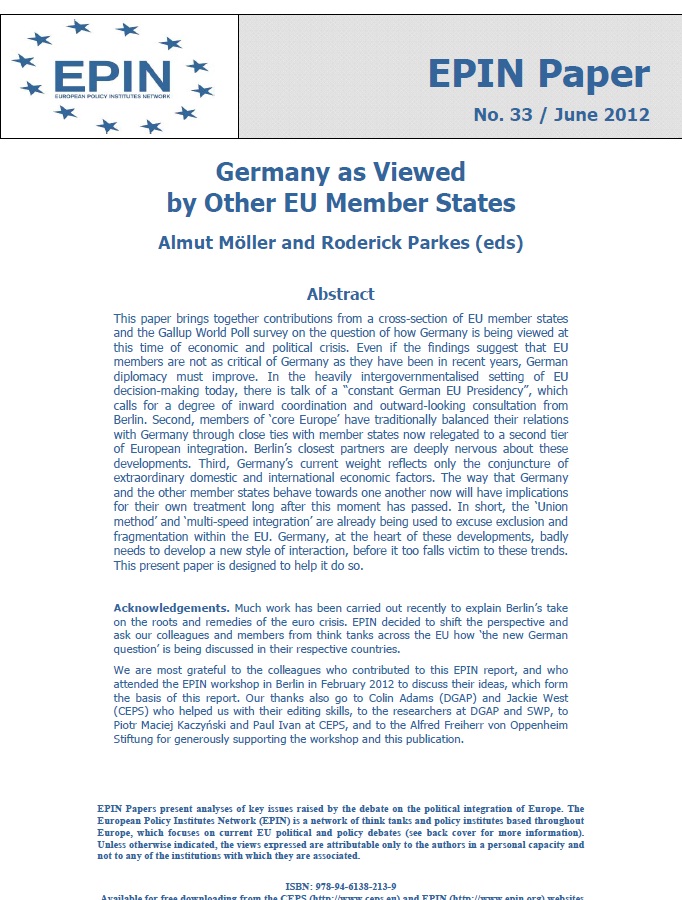France's Partner on a Pedestal: A view driven by pragmatism and envy

Since the fall of the Berlin wall and the end of the old world order, the French have, in their collective consciousness, associated Germany with the question of their own leadership. The awareness that Paris’ political and diplomatic influence on the international stage has been eroding did not lead to resignation, but rather to an aspiration to maintain strong influence on European integration and, in this context, to be on a par with Germany. The financial crisis has helped resurrect the spectre of a symmetrical Franco-German relationship, as it has become more evident that both countries have been drifting apart in terms of economic performance. In this regard, the discourse about Franco-German cooperation has to be understood as multi-tiered and as a reflection of a more general French malaise. Confidence and reliability generally mark French perceptions of its neighbour, but misunderstandings and irritation concerning the political system and Berlin’s expectations vis-à-vis European politics do occur.
This paper brings together contributions from a cross-section of EU member states and the Gallup World Poll survey on the question of how Germany is being viewed at this time of economic and political crisis. Even if the findings suggest that EU members are not as critical of Germany as they have been in recent years, German diplomacy must improve. In the heavily intergovernmentalised setting of EU decision-making today, there is talk of a “constant German EU Presidency”, which calls for a degree of inward coordination and outward-looking consultation from Berlin. Second, members of ‘core Europe" have traditionally balanced their relations with Germany through close ties with member states now relegated to a second tier of European integration. Berlin"s closest partners are deeply nervous about these developments. Third, Germany"s current weight reflects only the conjuncture of extraordinary domestic and international economic factors. The way that Germany and the other member states behave towards one another now will have implications for their own treatment long after this moment has passed. In short, the ‘Union method" and ‘multi-speed integration" are already being used to excuse exclusion and fragmentation within the EU. Germany, at the heart of these developments, badly needs to develop a new style of interaction, before it too falls victim to these trends. This present paper is designed to help it do so.
EPIN Papers present analyses of key issues raised by the debate on the political integration of Europe.
This article is available for free downloading from the CEPS and EPIN websites. "Germany as Viewed by Other EU Member States", Almut Möller and Roderick Parkes (eds)
Download the full analysis
This page contains only a summary of our work. If you would like to have access to all the information from our research on the subject, you can download the full version in PDF format.
France's Partner on a Pedestal: A view driven by pragmatism and envy





